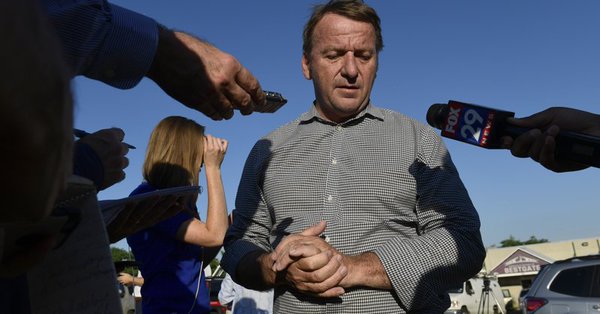BALTIMORE (AP) — Amid a devastating attack that killed five people at a historic Maryland newspaper, journalists at the paper took to social media to seek help and report on the fatal shooting.

Photo: AP
In the immediate aftermath of the Thursday afternoon shooting, they identified who was safe and voiced their first waves of grief. They also used social media to explain journalism’s truth-telling mission, trying to demystify what journalists do in an era when they’re often attacked as spreading “fake news.”
News of the Thursday massacre began with a chilling tweet sent at 2:43 p.m. by an intern at The Capital Gazette in Annapolis, Maryland’s capital. Anthony Messenger wrote: “Active shooter 888 Bestgate please help us.” Amid the chaos, Messenger had the bearings to share the newsroom’s street address.
Later in the day, as he waited to be interviewed by investigators, the Annapolis newspaper’s crime and courts reporter tweeted that a “single shooter shot multiple people at my office, some of whom are dead.” The reporter, Phil Davis, revealed that the gunman “shot through the glass door to the office.”
In a subsequent tweet, Davis said he heard the sound of the gunman reloading what authorities later said was a shotgun.
“There is nothing more terrifying than hearing multiple people get shot while you’re under your desk and then hear the gunman reload,” Davis wrote.
Photojournalist Paul W. Gillespie, who was in the newsroom when the attack began, wrote on Twitter that he was untouched physically but was “a mess” mentally.
“Please pray for my coworkers who were not as lucky as I was. We lost some truly great people today. I am in shock trying to process this horrible situation,” Gillespie tweeted.
At a time when journalists are frequently denigrated, Capital Gazette editor Jimmy DeButts took to Twitter after the attack to tell the public that the newspaper’s staff are guided daily by a “passion for telling stories from our community.” They do the work without any expectation of “big paydays,” he wrote.
In a series of tweets, DeButts tried to explain what hardworking journalists actually do day after day.
“We try to expose corruption. We fight to get access to public records & bring to light the inner workings of government despite major hurdles put in our way,” he tweeted. “The reporters & editors put their all into finding the truth. That is our mission.”
As investigators tried to piece together what happened, photojournalist Josh McKerrow shared his unshakeable resolve to keep The Capital Gazette publishing for his Annapolis community, tweeting: “There will be a Capital Friday.”
Chase Cook, a reporter, was more blunt. He tweeted: “I can tell you this: We are putting out a damn paper tomorrow.”


